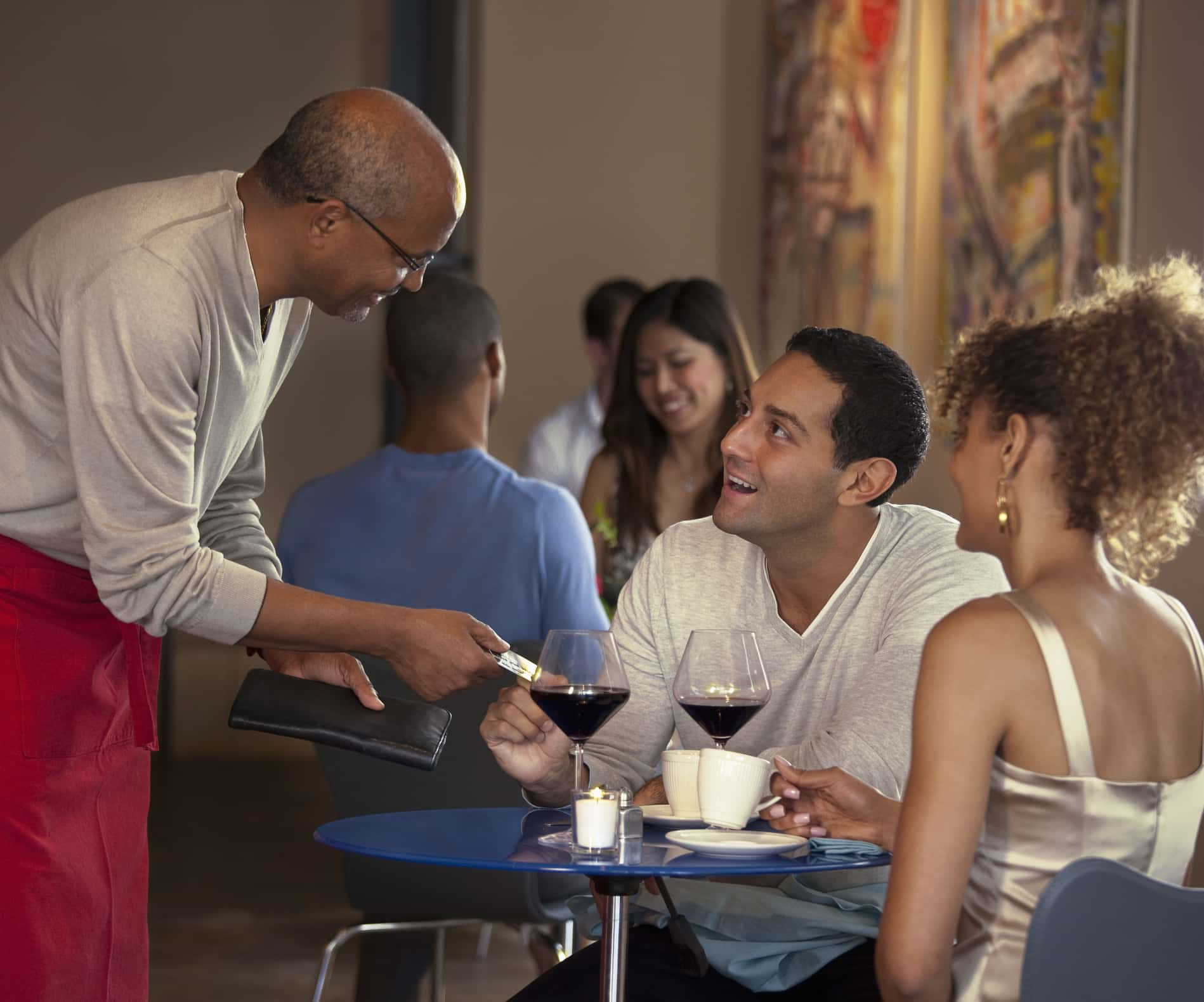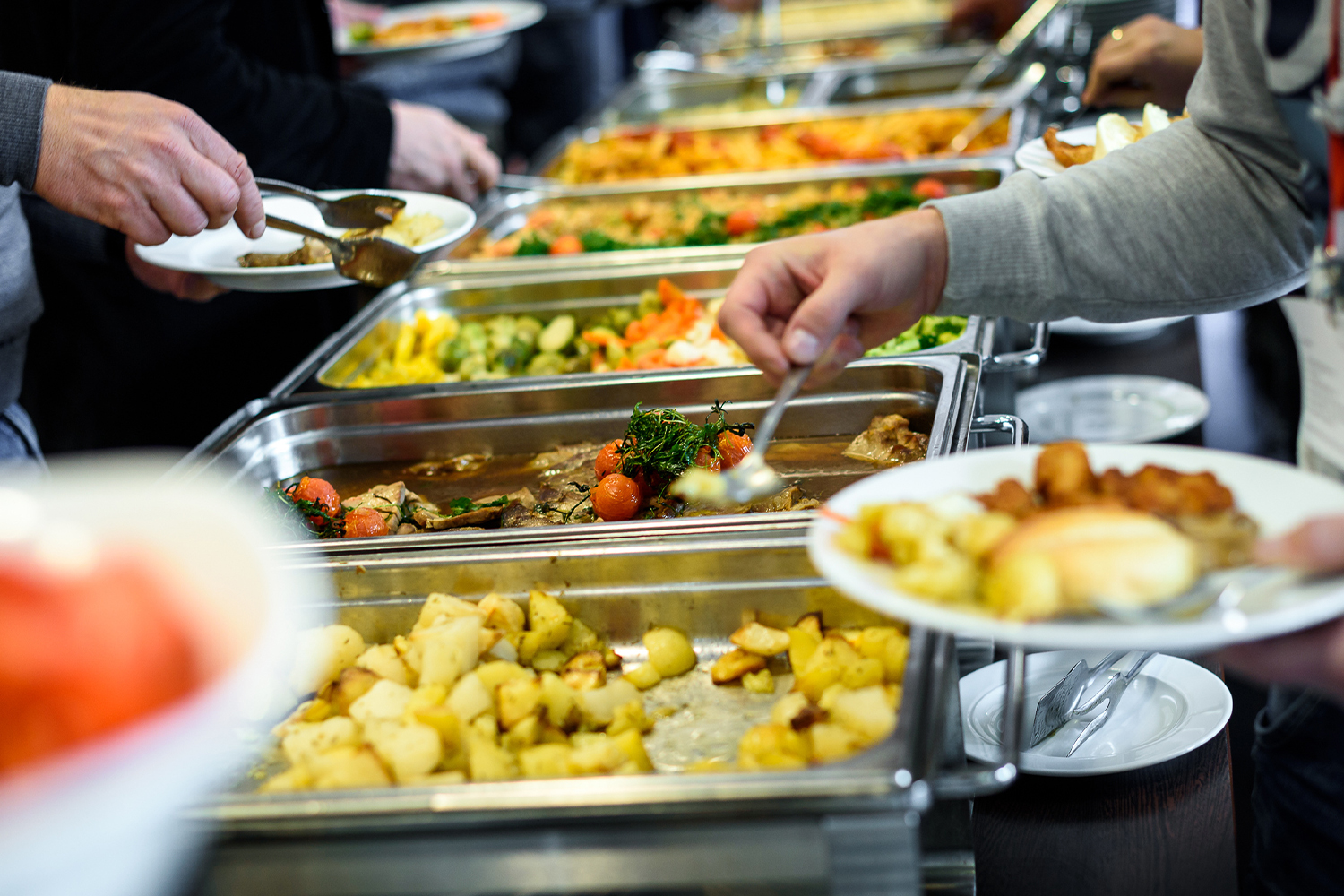How much are you REALLY paying when you dine-out?

The costs of dining out in the U.S. have seen a steady increase over the years, influenced by various factors ranging from food sourcing to labor expenses.
In this article, we'll discuss the following:
- How much Americans spend on dining out (hint: it's in the billions!)
- Which generation spends the most on dining out
- Why restaurants charge so much (this is mind-blowing!)
- Dining out vs. cooking at home
- Whether or not restaurant delivery is actually cheaper (it's not what you think)
If after all that you still itch for that dine-out experience, we have two really good suggestions to make your dining-out experience a little easier on your wallet.
Let's dive in!
How much do American’s spend on dining out?
Americans' spending on dining out has presented a substantial chunk of their annual expenditures, with many prioritizing convenience and experience over saving a few dollars.
Pre-pandemic figures from the Bureau of Labor Statistics revealed that in 2019, the average U.S. household spent $3,526 on dining out. Interestingly, a study by the USDA in 2018 indicated that for the first time, Americans were spending more money on restaurants and bars ($54.857 billion) than they were on groceries ($52.503 billion), illustrating a pronounced shift in consumption habits.
The trend towards dining out isn’t just about the food but encompasses the social and experiential aspects that restaurants provide.
However, the costs accrue beyond just the financial, encompassing also potential health ramifications from less controlled dietary intake, which itself can translate to further economic burdens down the line.
The challenge for many is balancing the enjoyment and convenience of eating out with the tangible benefits of home-cooked meals, both financially and health-wise.
Which generation spends the most on dining out?
When it comes to allocating food budgets, Generation Z notably veers towards spending on dining outside the home, with a striking 52.4% of their total food expenditures devoted to meals consumed away from their own kitchens.
This practice translates to an average annual spending of $2,772 on food that is prepared and consumed outside their residences, showcasing a significant inclination towards convenience, sociability, and experiential dining.
Why is dining out so expensive?
Why does dining out seem to take a hefty chunk out of our wallets? Digging into the financial framework of the restaurant industry, the point-of-sale firm BNG reveals a notable insight: restaurants typically adhere to a cost-to-menu price ratio hovering between 28% and 32%.
Essentially, this implies that the price patrons see on the menu is at least double, if not significantly more, than the cost the restaurant incurred to produce it. In fact, the leap from wholesale cost to retail pricing in restaurants commonly escalates to an impressive 300%.
This hefty markup, while stark when laid out in plain percentages, assists in covering various operational costs, ensuring that restaurants can continue serving your favorite dishes.
Cost Difference: Dining Out vs. Cooking at Home
The financial difference between purchasing a meal at a restaurant and crafting it in your own kitchen can be substantial, shedding light on a significant potential for savings when opting for home-cooked fare.
For instance, a study from Wellio revealed that on average, it is almost five times more expensive to order delivery from a restaurant than it is to cook at home.
A simple pasta dish at a restaurant could easily cost $15 or more, per person, especially when one factors in tax and tip. Contrast this with the cost of making a similar dish at home, which, even with high-quality ingredients, might only run $2-5 per serving, presenting stark financial savings.
Moreover, cooking at home allows for complete control over ingredients and portion sizes, which not only aids in managing health and dietary needs but also can stretch a meal to provide leftovers, amplifying the cost-effectiveness.
Thus, the economical edge of home cooking becomes more pronounced, offering not only a reprieve for wallets but also an often-overlooked opportunity to make healthier and more mindful food choices.
Why do people choose dining out over home cooked meals?
The decision to dine out instead of cooking at home often revolves around a constellation of factors, among which convenience, time scarcity, and social enjoyment are paramount.
In our fast-paced society, many individuals find themselves strapped for time due to demanding work schedules, family obligations, or other life commitments.
Consequently, the instant gratification and ease of ordering a meal that requires no preparation or cleanup become immensely appealing.
Moreover, dining out or ordering in can also serve as a social or familial activity, providing an environment that encourages interaction and bonding over meals without the distraction of cooking duties.
The allure of trying diverse foods, experiencing unique flavors and cuisines, and simply enjoying a break from the routine of cooking and cleaning up further fuel the preference towards eating out.
Thus, while it might appear as merely a choice about food, opting to dine out intertwines with aspects of time management, social interaction, and a desire for varied experiences.
Delivery vs. Sit Down Dining
Choosing delivery instead of dining in can be a cost-saving or cost-increasing decision based on various factors. Here's a breakdown:
Pros of Choosing Delivery (Cost-Saving Aspects):
- No Tip or Lower Tip: Depending on one's tipping habits, one might spend less on tips for delivery compared to a sit-down service. While it's courteous and often expected to tip delivery drivers, the amount might be less than what you'd tip for full-service at a sit-down establishment.
- Avoid Ancillary Costs: When you dine in, you might be tempted to order additional items like appetizers, desserts, or alcoholic beverages, which can significantly increase the bill. At home, you can supplement your main order with items you already have, like drinks or snacks.
- No Parking Fees: In city centers or busy areas, parking can be expensive. By opting for delivery, you avoid potential parking fees or the hassle of finding a parking spot.
Cons of Choosing Delivery (Cost-Increasing Aspects):
- Delivery Fees: Many restaurants charge a delivery fee, which adds to the overall cost. This fee does not go to the driver as a tip; it's an additional charge.
- Higher Prices: Some platforms or restaurants might charge a slightly higher price for items on their delivery menu compared to the dine-in menu.
- Minimum Order Requirement: Some establishments require a minimum order amount for delivery, which might lead you to order more than you initially intended.
- Service Fees: On top of delivery fees, third-party delivery apps like DoorDash, Uber Eats, and Grubhub might charge a service fee, which is a percentage of your total bill.
The Benefits of a Buffet
If you absolutely must dine out, opting for a buffet-style restaurant over a traditional sit-down dining experience can notably trim your dining out expenses, particularly when appetites are ample.
Buffets generally offer a plethora of options, accommodating diverse palates, all for one fixed price. This means you can indulge in a variety of dishes, often including appetizers, main courses, and desserts, without the added costs typically associated with ordering multiple courses in a standard restaurant setting.
Furthermore, buffets often present the advantage of immediate gratification, eliminating wait times for meal preparation and service, thereby potentially saving not just money, but also time.
For families or groups with varied taste preferences, a buffet can economically satisfy different preferences without the necessity of compromising on choice or budgeting for multiple distinct dishes.
Dining Out with Discretion
If you're not yet ready to cut out the dining experiencing, we understand. But dining out doesn't always have to put a dent in your wallet. By making smart choices, you can enjoy a meal at a restaurant without breaking the bank.
Firstly, consider opting for lunch menus or daily specials, which often offer the same quality dishes at a fraction of the dinner price.
Sharing entrées or ordering appetizers as your main course can also provide adequate portion sizes at reduced costs.
Skipping beverages like sodas and alcoholic drinks, which tend to have a high markup, and sticking to tap water can further cut down the bill.
Additionally, joining a restaurant's loyalty program or taking advantage of early-bird specials, coupons, and discount days can lead to significant savings.
Lastly, by setting a budget beforehand and checking the menu prices online, you can manage expectations and make informed decisions, ensuring a delightful dining experience without the financial guilt.















